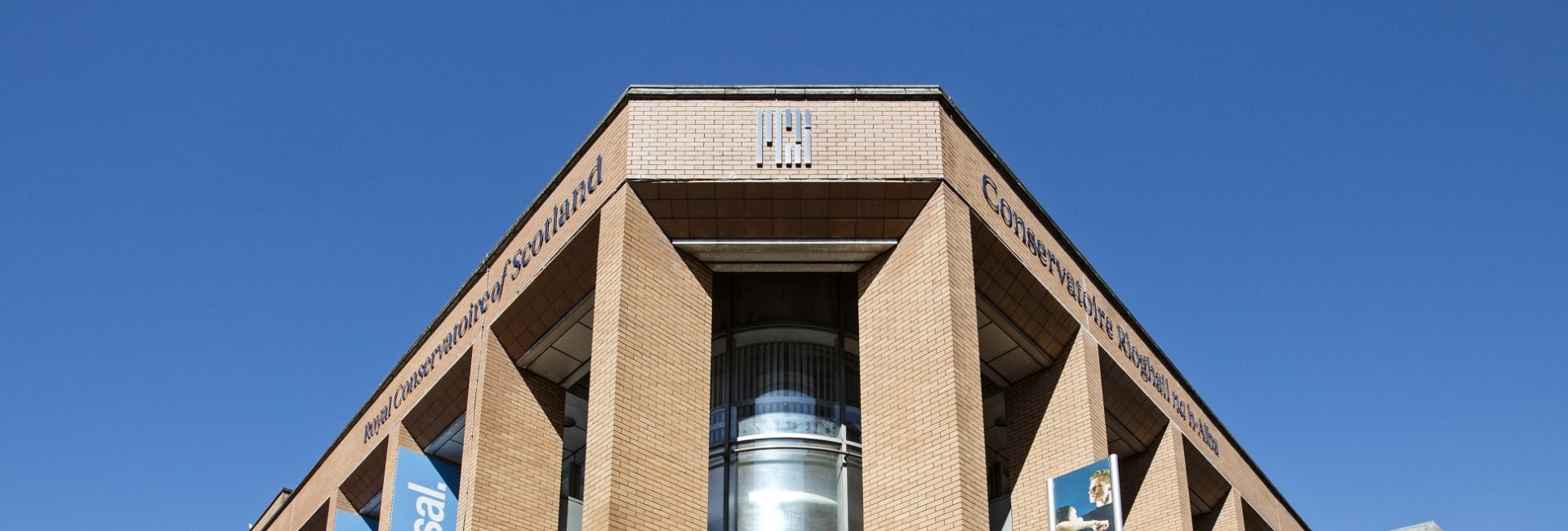Royal Conservatoire of Scotland
100 Renfrew Street
Glasgow
G2 3DB
Visit our website Visit our course page
Course contact details
Main Contact
Email:admissions@rcs.ac.uk
Phone:0141 332 4101
Fax: 0141 332 8901


You begin your postgraduate studies with the core of your musical personality – the skills, understandings and attitudes that define you as a traditional musician or piper – already established. Your postgraduate studies should nurture that existing artistic personality so that you can make a difference in the fields in which you choose to work.
The programme offers advanced training to talented traditional musicians from diverse undergraduate degrees or their equivalent. We have designed the programme so that you take ownership of the learning process throughout the degree and beyond, whether in the professional world or in further studies (such as a PhD).
Our staff are professional performers, composers, and scholars of Scottish traditional music (and beyond) with active careers. They understand the challenges that you’ll face in your career and can provide help and advice as you progress. As well as working with our core staff, you’ll get the opportunity to learn from visiting artists and academics from all over the world.
There’s a great atmosphere in the department and the Conservatoire as a whole. We have a close-knit community where you will perform and gig with other students and staff, making friends for life.
As for professional and institutional collaborations, we work closely with the National Piping Centre, Sabhal Mòr Ostaig and the Celtic Connections and Piping Live festivals in delivering a varied and vocationally robust experience for its students.
Piping tuition on the MMus is delivered in collaboration with the National Piping Centre — an internationally recognised centre of excellence in Highland Bagpipe teaching.
International students on Student visas are not permitted to undertake any of the part-time routes.
Curriculum Review
We are currently in the review cycle for our postgraduate music programmes starting in 2025, these courses are currently designated 'subject to validation'. This is standard practice during curriculum review periods. The outcome of this process, may mean there are some changes to how your programme is delivered.
During the application and audition process, you must select which instrument(s) you wish to specialise in for the duration of your course. On this course, you can choose from the following options:
Only one specialism is studied. It may be possible to study a further instrument, but this will not contribute towards the qualification.
For all courses, you must select at least one specialism from the 'primary' list. For those studying primary/secondary pathways, two instruments may be selected – one from the 'primary' list and one from the 'secondary' list. Joint pathway students may select any two instruments from either list.
Please see our webpage for more information about the course.
Please see our webpage for more information about the course.

Learn what it's like to study at Royal Conservatoire of Scotland. From key stats to campus highlights, open days, and more - find everything you need to know here.
The following entry points are available for this course:
Currently around 20% of our students come from outside the UK. Between them, they represent over 60 different nationalities and add a rich diversity to the Conservatoire.
Candidates for both the MMus and MA are normally expected to hold a good degree (at least 2:2), or its overseas equivalent, in a subject area relevant to the demands of the programme.
In addition to the general entry requirements, candidates will preferably already have public performance experience of working with singers and instrumentalists. Knowledge of a specialist area of relevant repertoire (e.g. vocal, string, wind) is also desirable.
| Test | Grade | Additional details |
|---|---|---|
| IELTS (Academic) | 6 | 6.0 with no component below 5.5 |
| TOEFL (iBT) | 80 | Overall score of 80, with minimum scores of: Reading – 18, Listening – 17, Speaking – 20, Writing – 17 |
| PTE Academic | 59 | Overall score of 59 with a minimum of 59 in all components (reading, listening, speaking, writing) |
More information about our language requirements can be found at the weblink. https://www.rcs.ac.uk/study/international-students/english-requirements/
| Location | Fee | Year |
|---|---|---|
| Channel Islands | £6435* | Year 1 |
| England | £6435* | Year 1 |
| Northern Ireland | £6435* | Year 1 |
| Scotland | £6435* | Year 1 |
| Wales | £6435* | Year 1 |
| Republic of Ireland | £6435* | Year 1 |
| EU | £13734* | Year 1 |
| International | £13734* | Year 1 |
* This is a provisional fee and subject to change.
Tuition fee status depends on a number of criteria and varies according to where in the UK you will study. For further guidance on the criteria for home or overseas tuition fees, please refer to the UKCISA website.
Please note, fees are subject to change for AY25 entry
Associated programme costs may be required for this programme for any new student at the start of their studies. For more information on please see our website - https://www.rcs.ac.uk/study/fees-funding/fees/
The Royal Conservatoire is able to offer a number of entrance scholarships which are awarded as part of the audition/selection process on the basis of merit and financial need. Please see our website for more information - https://www.rcs.ac.uk/study/fees-funding/scholarships/
100 Renfrew Street
Glasgow
G2 3DB
Visit our website Visit our course page
Email:admissions@rcs.ac.uk
Phone:0141 332 4101
Fax: 0141 332 8901